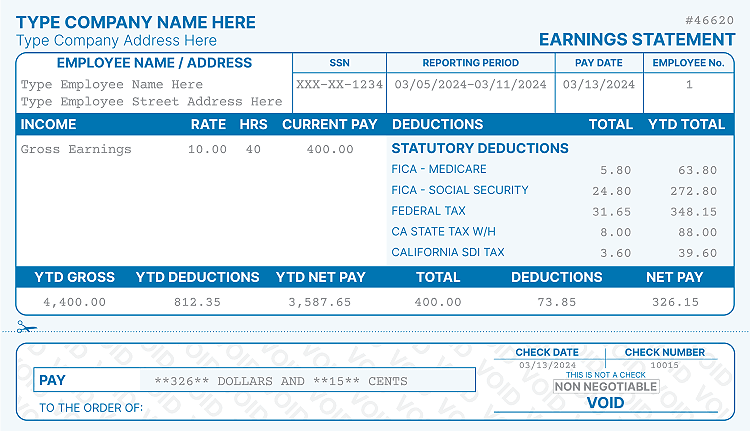What Is the Difference Between a Warrant and a Check?
You may have a question: Is a warrant the same as a check? Or payroll cards vs. direct deposit? To get around in the world of money, you need to know how these two documents are different.
A warrant is a written order from a court or government agency that gives someone legal authority to do something. At the same time, a check is a written order from a bank account holder that orders the bank to pay a certain amount of money to the recipient. Although both documents are in written order, people use them for different purposes.
What is a Payroll Warrant?

Payroll warrants are a way for an employer or organization to pay its employees for the work they've done. Generally, special paper and security features protect against counterfeiting when printing payroll warrants.
Furthermore, these warrants are usually provided regularly, such as weekly or biweekly. The stubs include information about the employee's earnings, taxes withheld, and any other deductions, and they accompany the stubs.
In addition, some businesses also use payroll warrants to pay independent contractors and vendors. All in all, payroll warrants are a safe, reliable way of paying employees and contractors.
What is a Check?
A check is a written, mostly paper document that instructs a bank to withdraw a certain amount of funds from a person's account and distribute it to the person named on the check.
Checks are a common way to pay for goods and services, and they provide an easy and secure way to transfer money between accounts, allowing people to make payments without carrying around large amounts of cash. Checks provide a transaction record and security against fraud and theft.
Payroll Warrant vs. Check
The main difference between a payroll warrant and a check is that the state or local government issues a payroll warrant as a form of payment to its employees. On the other hand, a private company issues a check as a form of payment to its employees.
Most of the time, payroll warrants are used to pay people who work for the state, county, city, or school district. Most of the time, these warrants are given out on a set schedule. They can be used to pay salaries, wages, bonuses, and other types of payments. Most payroll warrants have the name of the government agency that issued them and the name of the employee.
Private companies typically issue checks to pay their employees. People may use them to pay salaries, wages, bonuses, commissions, or other types of payments. The issuing company typically prints checks with their name and the employee's name. The bank will include the bank account number from which funds will be drawn when somebody cashes the check.
|
Payroll Warrant |
Check |
|
Issued by the state or local government |
Issued by private company |
|
Pays employees of government entities (state, county, municipality, school district) |
Pays employees of private company |
|
Issued on a predetermined schedule |
Not specified |
|
Printed with name of issuing government entity and employee's name |
Printed with the issuing company's name and the employee's name. |
|
Bank account number not included |
Bank account number included |
Frequently Asked Questions (FAQs)
What is a warrant in the public sector accounting?
In public sector accounting, a warrant is a financial instrument that lets certain amounts be paid out of public funds. Most of the time, this document is issued by a government agency or another public body with some kind of legal authority.
What is a pay warrant?
A warrant of payment is a financial instrument the government uses to authorize payment. It is an authorization for the government to pay money from a specific fund to a designated individual or organization. The Comptroller General issues a pay warrant, and the authorizing official must sign it before you can cash it.
What is a treasurer of state warrant check?
The treasurer's office of a particular state issues a treasurer's warrant check as a type of payment. It is similar to a personal check but is more secure because the state treasury backs it. The state usually uses Treasury warrants for large payments, such as taxes or purchasing goods and services.
How to cash a warrant check?
Cashing a warrant check is a relatively straightforward process. The first step is to take the check to your local bank or credit union. Depending on the bank, you may need to show them a driver's license, passport, or other form of identification.
Once you do this, the teller will validate the checks and deposit the funds on your account or payroll card.
Kristen Larson is a payroll specialist with over 10 years of experience in the field. She received her Bachelor's degree in Business Administration from the University of Minnesota. Kristen has dedicated her career to helping organizations effectively manage their payroll processes with Real Check Stubs.

